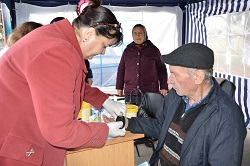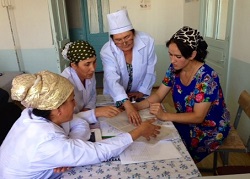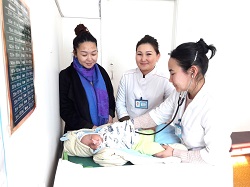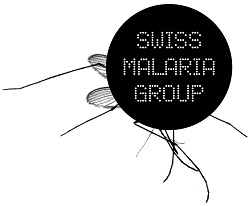The program targets young researchers interested in conducting operational research in Primary Health Care and Public Health. The first cohort of researchers attending the program is composed of professionals with different backgrounds, from medicine and public health to economic sciences. “
About 65 teaching hours have been spent to deliver this training program. A module-based evaluation is applied to help empowerment of participants and motivation for positive changes of the organizers.
Contact
Irma Qehajaj
Communication Officer at Health for All Project

Moldova
Therapeutic education is an integral part of the treatment of patients with type 2 diabetes and important to integrate into routine medical practice. The Republic of Moldova has scarce resources, including medical professionals that can play a role in patient education for non-communicable diseases (NCDs) management and beyond.
The Healthy Life Project worked with the Moldovan Society of Endocrinologists and family medicine specialists to review the education needs of diabetic persons along the patient pathway. This included opportunities within the health centre (waiting hall, check-up room, examination room, class for patient education), and to reach the wider target audience of people at risk of type 2 diabetes, or with prediabetes, persons newly diagnosed, with a history of diabetes and its acute or chronic complications.
The developed materials include posters, a patient guide and diary, brochures, leaflets oriented towards risk factors reduction and type 2 diabetes care. Patients themselves were involved in their development, and the final package presents a comprehensive approach that requires people-centered continuity, repetition, and resumption of information, risk factors and disease evolution clarifications.
The key product is a Diary for self-management and type 2 diabetes control that lends itself to continuous and dynamic use throughout the patient's life. Furthermore, short videos were recorded to remind patients about the correct technics of glucose measurement and other vital functions check.
To facilitate the introduction of these materials, 65 trainings, including online trainings with the onset of the pandemic, were supported for medical professionals (over 3400 participants). Regular check-up visits at health facilities were reorganised as remote consultations. More than 55,000 copies of the materials have been requested so far. All materials are also available at the Project website
https://viatasan.md/ or
https://prosanatate.md/.
Valeriu Sava
National Program Officer in Health, Representation of the Embassy of Switzerland to Moldova
valeriu.sava@eda.admin.ch

Mozambique
The honourable Matilde Canhenga and Fatima Asseli are our Queens of sanitation, hygiene promotion and sustainable water supply, for Mbetazigone, Lichinga District, Niassa Province. In the context of Niassa, for someone to be a queen, they must first play a leading role in society. According to Vene (2018), historically, the figure of a traditional Queen in Niassa, played a key role in maintaining the balance of power, through the skills to guide several traditional rites. These include the preparation of elixirs and medicines to fortify warriors, purify trading caravans bound for the Indian Ocean and for use in sacred rites to call the rains, as well as being advisors to the traditional leaders, Régulos. Matilde and Fatima recognised that their community had long suffered from waterborne disease and decided to participate in a meeting for hygiene behaviour change supported by the GoTAS programme. Due to their proactivity, they were chosen by the community as leading members of the sanitation group and this is when their leadership journey began. Their mission was to convince other women and men in the community to adhere to good sanitation and hygiene practices. These women actively participated in community mobilization until the community achieved Open Defecation Free (ODF) Status. Because of their leadership role in the community, Matilde and Fatima increased their self-esteem, gained popularity in the community and district, and managed to rally the community for the construction of 2 water boreholes. They continue to mobilize families to contribute to the operation and maintenance funds for the boreholes. This is their story in their own words...
The community’s past
“We received this well 4 years ago, the way it works today is like it was built yesterday. Previously, our life was really complicated, we had to go to the river to fetch precious water. Life was not easy, we shared the same water source with wild animals, and in turn, diarrheal diseases were also inevitable. There was a time that cholera, diarrhoea, and malaria were common amongst the community. People of all ages, knew what was happening and what needed to be done to reduce the incidence of these diseases. We are very grateful for the initiative of the GoTAS programme, which opened our eyes, for having told us that the solution to these problems was in our hands, and that it was possible to overcome this problem together without having to spend a lot of money“
The change
“The first activity that the GoTAS programme encouraged us to undertake was to organise ourselves, so we appointed respected leaders to lead the process of change. Subsequently, the sanitation group was created, composed of 12 people, 6 women and 6 men. Thus, we were able to work together until we ensured that each family from the community had access to a toilet. Initially, we failed to achieve ODF status, however, the community did not stop there, it continued to work and the following year we managed to achieve ODF status. Through this process we gained strength and resilience and through our Local Council we strived to advocate until we obtained a water borehole. Today, we have this source of water. Since our community is very large, we advocated to have a second source of water, once all the conditions were created, we received another water borehole. All residents of this village and beneficiaries of these two water sources in the community, recognize the effort of the community leadership in wanting to develop our community. Therefore, everyone is aware that these two boreholes in this community must not in stop working due to lack of funds, we must all contribute in order to continue to drink clean water. So, with the funds collected, we have managed to repair our water sources. Last week the bushes on the pump failed, on the same day we travelled to the city to buy the parts, returned and managed to replace them. It was a beautifully smooth process thanks to the collaboration of the community together with our advisory board. Today, we have a clean community, people are healthy, children can study well, the distances to fetch water are reduced, and consequently we are happy in our homes…
Long live Water, Long live GoTAS
Download the story in
EN and
PT.
GOTAS Contact
Telephone: +258 21 486790
Email: omacamo@snv.org

Kyrgyzstan
When the COVID-19 pandemic hit Kyrgyzstan in March 2020, it caused major disruptions at all levels, in the health sector in particular, overwhelming the response capacity of medical services. Like many countries around the world, Kyrgyzstan lacked the necessary equipment and the organizational capacity to respond efficiently to the epidemic. Health authorities did their best to build up a coordinated response with the limited resources available. No need to say that this major health crisis had a serious impact on all cooperation projects, particularly those in the health sector. This was the case of the SDC's Medical Education Reforms (MER) project in the Kyrgyz Republic, financed and owned by SDC. This project has been working since 2008 in reforming and strengthening the capacity of institutions involved in the education and training of medical students, doctors, particularly family medicine doctors, and nurses. The reform targeted all levels of medical education: pre-graduate and post-graduate training, and continuing medical education (CME).
Since its inception, the MER project has been working towards re-connecting and integrating more medical education into medical services to contribute more efficiently to the health system reform, focusing on primary care and strengthening its capacity. It is also decentralizing medical education by sending students and residents to the regions, increasing the role and responsibilities of regional healthcare facilities in medical education (ME). This integrative approach is essential to address the shortage of medical professionals in rural Kyrgyzstan, to provide well-qualified and competent doctors to serve the healthcare needs of the local population.
Based on the Swiss Embassy request to reorient some project activities, the MER project became actively involved in the COVID-19 response. With the support of its partners' active involvement, many of the MER activities were reoriented into four main fields: 1) Strengthening the communication capacity at the Government and Ministry of Health (MoH) levels, by hiring consultants during the peak of the epidemic, 2) Supporting the development of a 118 Hotline and the implementation of call centers in the 7 regions/oblasts, 3) Providing Visio-conference equipment to regional medical facilities to support the distance-training of medical professionals, 4) Raising the visibility and supporting the role of nurses as key actors on the front line.
Strengthening Communication Capacity
MER helped the Government to shape and select key messages on COVID-19 control and prevention for the population. Simultaneously communication experts joined the MoH team to reinforce their communication capacities on developing and promoting the MoH main guidelines and messages. The expertise of the MER team, medical and nursing professional associations were solicited to facilitate access to useful international documents and guidelines to be adapted to the Kyrgyz context. It contributed to the development of a series of documents on frequently asked questions (FAQ), practical guidelines for people staying at home in confinement, on stress management. The pandemic provided an opportunity to boost the role of professional associations and to involve them in the training of medical workers on the COVID-19 response. The Kyrgyz Medical Association (KMA) and Family medicine association (FGPA) played an important role in developing and conveying COVID-19 prevention and case management guidelines and recommendations.
Call-Centers development – 118 Hotline
In partnership with the MoH and the SOROS foundation, MER financed the development and implementation of call centers in all the 7 regions of the country. The establishment of the 118 Hotline was a great success: people called to get general information on COVID-19, referral and testing, but also prevention and treatment. MER contributed to the development of questionnaires, algorithms and training of the operators, many of them being residents in the Family Medicine Specialty. Interestingly, the Coronavirus crisis not only illustrated the need to reinforce the primary care sector in Kyrgyzstan but also the benefits of having this young extra medical workforce available to provide services to the local population. Through the 118 Hotline and their strong involvement in the COVID-19 response, Family Medicine Centers (FMCs) gained much more importance. This explains why the current 118 hotline remained in place, even after the peak of the epidemic in the main FMCs. It also facilitated the development of remote consultations and online patient follow-up. Specific training was provided to FMCs personnel to develop these new communication competencies.
Visio-Conference equipment procurement and distribution
In line with the digital era, MER had planned to provide and distribute several Visio-Conference equipment – a gamble with the time. Luckily, the delivery arrived just before the lockdown was imposed at the end of March. In total, 74 Health facilities across the 7 regions and 3 main training institutions in Bishkek received the necessary IT equipment. This facilitated greatly the communication between Bishkek and the regions during the COVID-19 crisis when everyone was using distance communication tools and no travel was tolerated. It allowed experts to exchange, online training and meetings to be organized and the diffusion of rules and guidelines to the entire network of clinical facilities, particularly ambulatory primary care clinical sites. This crisis accelerated the acceptance and use of distance learning and online interaction of medical professionals and tightened the links between health professionals and the network of medical facilities.
Raising the visibility and the role of nurses as key actors in the health system
The image and the status of nurses remain very low in Kyrgyzstan. This COVID-19 crisis provided an opportunity to highlight the importance of nurses in primary health care. The MER project strongly believes that strengthening nurses' training and increasing their competencies and responsibilities is critical and needs to be translated into reformed regulations and laws. The nurses' professional association (NPA) has become even more proactive during the pandemic, using social media to deliver key messages and recommendations. Thanks to its members' active involvement in all front line prevention and control activities, the nurses deserve to be widely recognized as real “heroes" of epidemic management. Taking advantage of the WHO 2020 Year of Nurses initiative, the MER project focused its communication strategy on the visibility of nurses. Initially, only doctors were visible on the media. MER encouraged the MoH and the communication experts in charge to give greater visibility to the invaluable role of nurses and organized an online forum only for nurses in November 2020 – a huge success, with more than 700 participants from all over the country.
During this crisis, the MER project and its partners have done their best to contribute to the national efforts to control the pandemic. As illustrated above, it also used emerging opportunities to develop or strengthen new areas of activities, which overall will contribute to the reinforcement of primary care. Nurses and medical associations have increased their visibility and new competencies have been developed at ambulatory Family Medicine Centers in the field of communication, particularly in the regions. All these positive outcomes are the result of joint creative efforts made during these critical and very stressful times. We would like to convey our deep gratitude to all partners of the MER project for their invaluable contribution and dedication to the immense efforts made in fighting COVID-19.
Contact
Marina Gioachino & Louis Loutan
Hôpitaux Universitaires de Genève
Marina.Giachino@hcuge.ch; Louis.Loutan@hcuge.ch
Headquarters activities

